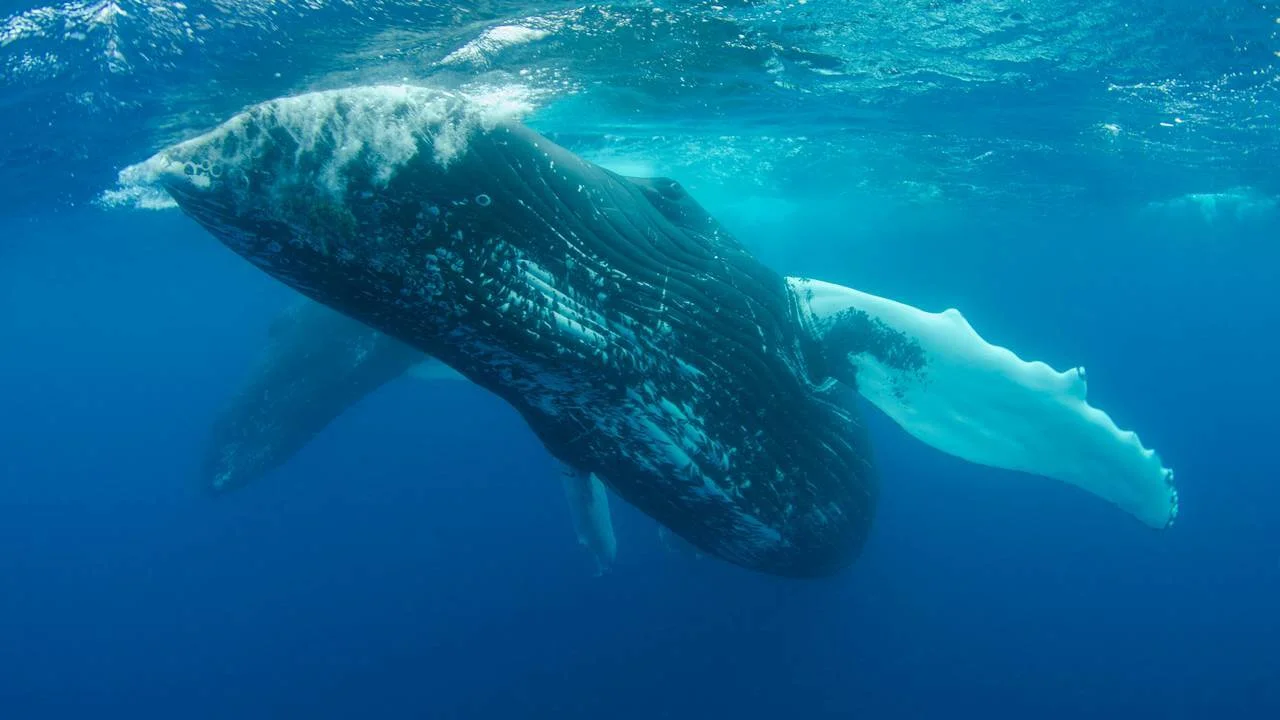Blue Whales Fall Silent as Warming Oceans Disrupt Food Chain
Blue whales are singing less as their food supply vanishes, raising alarms about ocean health and the effects of climate change.

Blue whales, the largest animals on the planet, have become noticeably quieter in recent years—and scientists believe this shift is linked to changes in ocean conditions that threaten their survival.
A new study published in PLOS analyzed six years of underwater acoustic recordings from the Pacific Ocean off the coast of California. The recordings reveal that blue whale vocalizations have dropped by nearly 40 percent, a trend that began during a powerful marine heatwave.
A Song Fades with the Food
Researchers found that the decline in whale songs coincided with a dramatic decrease in krill—the primary food source for blue whales. This decline began around 2013, when a massive pool of unusually warm water known as “The Blob” moved from the Gulf of Alaska down the North American coast.
As ocean temperatures rose—at times more than 4.5°F above average—krill populations plummeted. The heatwave also triggered toxic algal blooms, further disrupting marine food webs. Without krill, blue whales faced a food crisis that not only affected their nutrition but also their behavior.
“It’s like trying to sing while you’re starving,” explained John Ryan, a biological oceanographer at the Monterey Bay Aquarium Research Institute. “They were spending all their time just trying to find food.”
The Blob’s Expanding Impact
At its peak, The Blob covered roughly 2,000 miles of the Pacific Ocean, reaching depths of over 300 feet. The scale and intensity of this event caused system-wide disruptions, particularly for species like blue whales that depend almost exclusively on krill.
Kelly Benoit-Bird, a marine biologist and co-author of the study, emphasized that heatwaves do more than raise temperatures. “The whole system changes, and we don’t get the krill,” she said. “So the animals that rely only on krill are kind of out of luck.”
Climate Stress and a Quiet Ocean
Blue whales typically produce powerful, low-frequency songs that can travel hundreds of miles. These vocalizations play a crucial role in communication and mating. But during the marine heatwave, the whales appeared to stop singing, likely as a result of extreme stress and energy conservation.
“There’s just not enough time left over,” said Ryan. “That tells us those years are incredibly stressful.”
Scientists warn that such events are likely to become more common and severe due to climate change. The oceans currently absorb more than 90 percent of the excess heat generated by global warming, making marine heatwaves a growing threat.
A Warning for the Whole Ecosystem
The decline in blue whale songs is not just an isolated concern—it signals broader ecological shifts. If blue whales, which can traverse the entire West Coast of North America, are unable to find food, it suggests major disruptions across vast marine ecosystems.
“There are whole ecosystem consequences of these marine heat waves,” said Benoit-Bird. The quieting of the ocean’s giants may be one of the earliest, most haunting signs of what lies ahead.
Last reviewed on .
Article history
- Latest version
Reference(s)
- Ryan, John P.., et al. “Audible changes in marine trophic ecology: Baleen whale song tracks foraging conditions in the eastern North Pacific.” PLOS ONE, vol. 20, no. 2, 2025, doi: 10.1371/journal.pone.0318624. <https://doi.org/10.1371/journal.pone.0318624>.
- Nunn, Avery Schuyler. “Blue whales are going eerily silent—and scientists say it’s a warning sign.”, 29 July 2025 National Geographic <https://www.nationalgeographic.com/animals/article/ocean-heat-wave-blob-whale-songs>.
Cite this page:
- Posted by Dayyal Dungrela